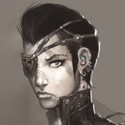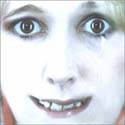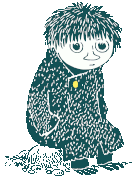|
Welcome earthlings to the Awful Book of the Month! In this thread, we choose one work of Resources: Project Gutenberg - http://www.gutenberg.org - A database of over 17000 books available online. If you can suggest books from here, that'd be the best. SparkNotes - http://www.sparknotes.com/ - A very helpful Cliffnotes-esque site, but much better, in my opinion. If you happen to come in late and need to catch-up, you can get great character/chapter/plot summaries here.  For recommendations on future material, suggestions on how to improve the club, or just a general rant, feel free to PM me. For recommendations on future material, suggestions on how to improve the club, or just a general rant, feel free to PM me.  Past Books of the Month 2011: January: John Keats, Endymion Febuary/March: Miguel Cervantes, Don Quixote April: Laurell K. Hamilton, Obsidian Butterfly May: Richard A. Knaak - Diablo #1: Legacy of Blood June: Pamela Britton - On The Move July: Raymond Chandler - The Big Sleep August: Louis L'Amour - Bendigo Shafter September: Ian Fleming - Moonraker October: Ray Bradbury - Something Wicked This Way Comes November: John Ringo - Ghost December: James Branch Cabell - Jurgen 2012: January: G.K. Chesterton - The Man Who Was Thursday Febuary: M. Somerset Maugham - Of Human Bondage March: Joseph Heller - Catch-22 April: Zack Parsons - Liminal States May: Haruki Murakami - Norwegian Wood June: James Joyce - Portrait of the Artist as a Young Man July: William S. Burroughs - Naked Lunch August: William Faulkner - The Sound & The Fury September/October: Leo Tolstoy - War & Peace November: David Mitchell - Cloud Atlas December: Kurt Vonnegut - Mother Night 2013 January: Walter M. Miller - A Canticle for Liebowitz Febuary: Alfred Bester - The Stars My Destination March: Kazuo Ishiguro - Remains Of The Day April: Don Delillo - White Noise May: Anton LeVey - The Satanic Bible June/July: Susanna Clarke - Jonathan Strange & Mr Norrell August: Michael Swanwick - Stations of the Tide September: John Wyndham - Day of the Triffids October: Shirley Jackson - The Haunting of Hill House November: Iain Banks - The Wasp Factory December: Roderick Thorp - Nothing Lasts Forever 2014: January: Ursula K. LeGuin - The Left Hand of Darkness February: Mikhail Bulgalov - Master & Margarita March: Richard P. Feynman -- Surely You're Joking, Mr. Feynman! April: James Joyce -- Dubliners May: Gabriel Garcia Marquez -- 100 Years of Solitude June: Howard Zinn -- A People's History of the United States July: Mary Renault -- The Last of the Wine August: Barbara Tuchtman -- The Guns of August September: Jane Austen -- Pride and Prejudice October: Roger Zelazny -- A Night in the Lonesome October November: John Gardner -- Grendel December: Christopher Moore -- The Stupidest Angel 2015: January: Italo Calvino -- Invisible Cities February: Karl Ove Knausgaard -- My Struggle: Book 1. March: Knut Hamsun -- Hunger Current: Liu Cixin -- 三体 ( The Three-Body Problem) quote:The Three-Body Problem (simplified Chinese: 三体; traditional Chinese: 三體, Three Body) is a science fiction novel by the Chinese writer Liu Cixin. It is the first of a trilogy titled Remembrance of Earthís Past, but Chinese readers generally refer to the series by the title of the first novel.[1] The title refers to the three-body problem in orbital mechanics. About the Author quote:Liu Cixin (simplified Chinese: 刘慈欣; traditional Chinese: 劉慈欣; born 1963) is a best-selling and award-winning science fiction writer based in People's Republic of China.[1] Liu is a nine-time winner of the Galaxy Award (the Chinese Hugo) and a winner of the Nebula Award. [2] As a writer of hard sci-fi, Liu got his technical training from North China University of Water Conservancy and Electric Power and in order to support his writing, worked as a computer engineer for a power plant located in a remote village in Shanxi province. Discussion, Questions & Themes: I've just gotten a ways into this but I can see why it's winning awards already. This is a far cry from something like Bridge of Birds -- this isn't a westerner's idealized China, it's a modern writer using sci-fi to wrestle with the historical legacies of twentieth-century China and twentieth and twenty-first century humanity. Pacing No pacing or spoiler rules this month. Just read! Final Note: If you have any suggestions to change, improve or assess the book club generally, please PM or email me -- i.e., keep it out of this thread -- at least until into the last five days of the month, just so we don't derail discussion of the current book with meta-discussion. I do want to hear new ideas though, seriously, so please do actually PM or email me or whatever, or if you can't do either of those things, just hold that thought till the last five days of the month before posting it in this thread. Thanks, and I hope everyone enjoys the book!
|
|
|
|
|

|
| # ? Apr 24, 2024 05:04 |
|
Read this just last month. loving owned. Read it.
|
|
|
|
Don't usually read hard sci-fi. But I enjoyed it, I guess, even if the pacing seems really uneven. I especially liked the setting of China in the wake of the Cultural Revolution. I think I would have preferred more of an anthropological exploration of the Trisolarans, though.
|
|
|
|
I finished reading a history of quantum physics just before starting this, so it's surreal that this begins by talking about Einstein and relativity.
|
|
|
|
I finished this, but I'm not yet sure what to make of it. The first half creates an almost phantasmagorical atmosphere as Wang deals with surreal goings-on and obtuse secret organisations, then the second half feels more like farce. The grand cosmological secret of the book ends up being completely inverted, from our world being the plaything of mighty forces and an island of stability amid chaos, to humans being the mighty forces who have been blundering around ignorant or careless of the brutal destruction of subparticular worlds all around them.Mira posted:I think I would have preferred more of an anthropological exploration of the Trisolarans, though. The treatment of the Trisolarans in particular intrigues me. We spend the first half of the book having interludes in the Three Body game, meeting parodic caricatures of various historical figures and periods. These are allegorical representations of the alien Trisolaran society. The in the second half we have a similar interlude with the Trisolarans and far from being a final revelation of the alien, it's exactly the same. Archetypical, human titles like 'princeps' and 'consul' strut around engaging in brutish cruelty and having farcical experimental misadventures. On the one hand the book reduces the great mystic questions - What is this force that can make the whole universe flicker? Is our whole existence but an illusory island of stability amid chaos? What is the nature of the great and mysterious aliens? How can we achieve the Great Proletarian Cultural Revolution? - to parlour tricks by a pack of brutish shitheads reduced to jeering 'you're bugs!' when exposed. On the other hand it emphasises the bottomless complexity concealed in small details, from the specifics of Ye Wenjie and the Trisolaran Listener's circumstances that produced their reactions and triggered the whole affair. But on the other other hand, it isn't a call to ignore big questions, as humanity is in genuine peril and will be destroyed if it can't find a way through the parlour tricks to the truth. I'm not, however, sure how well it holds together as a novel while accomplishing this. It definitely felt like a story of ideas, where the protagonists stumble from revelation to revelation. The ultimate reveal itself isn't so much a discovery as a reading of information directly given - for some reason - by the Trisolarans to their misanthropic allies. But on the plus side, it reminded me of no author so much as Stanislaw Lem, particularly in the first half. This reading also doesn't deal with the obvious 'chaotic period' and 'stable period' as signs for the cultural revolution and post-revolution periods of Chinese history, but I was trying (somewhat unsuccessfully) to avoid tying everything back to criticism of X communist party thing. Either way, it's intriguing to me that it's merely the first of a trilogy, so presumably Cixin has more to say. The translation felt quite clunky to me, but maybe I'm just not used to contemporary Chinese prose style. Peel fucked around with this message at 18:28 on Apr 12, 2015 |
|
|
|
My personal theory is that you are applying a rather Anglocentric interpretation: the trisolarians aren't so much a metaphor for China, in my view, as they are of an exploitative, warlike and stagnant West, that is fearful of the rise of rival powers, but still looked on with admiration by developing nations. The cult of the ETO is really the WTO and the cult of globalization.
|
|
|
|
I didn't intend to suggest the Trisolarans were a metaphor for some specific human political group. Just that they're a deflation of the mystic attitudes towards external saviours. Mysticism is wrong and our only hope to survive in a universe that might pull out the rug at any moment is scientific progress. The Trisolaran Princeps is represented in Three Body by King Zhou, Qin Shi Huang, and Pope Gregory - Chinese and Europeans, monarchs and popes, all prone to killing. ETO is drenched in Christian terminology: advent, miracles, Judgement Day.
|
|
|
|
So I'm about a 100 pages in and one thing has struck me as very odd. When Wang Miao first logs into the 3body game he immediately assumes the game world is going to have regular periods of light and dark, and that they can be measured using the same basic methods of amount of life and distance from the horizon you'd use in meat space. That's a weird attitude to take into a game, especially something highly immersive. Upon starting a new game I might work off real-world rules at first but only as a method to discover what is going to be different, because something if not everything is going to be different. Miao does mention having played video games when he was younger so you can't chalk it up to total ignorance of the medium. It's a strange quirk and I'm wondering if it's supposed to be saying something about Wang, the world of Three-Body Problem, or an over-site by the author himself.
|
|
|
|
I think it just highlights the myopic Earth-centrism that any player would be subject to, even when you are aware that the environment may turn out to be radically different, your subconscious still tries to impose known patterns.
|
|
|
|
quote:China may have surged ahead in scientific prowess in recent decades, but it still lags behind other countries in science fiction. http://www.npr.org/blogs/parallels/2015/04/09/398519222/cultural-revolution-meets-aliens-chinese-writer-takes-on-sci-fi It's on NPR so that means it's literary right?
|
|
|
|
|
Just finished the book. It's wonderfully weird, in part for the reasons Peel pointed out. I'm looking forward to the sequel; I'm interested in seeing what humans come up with to beat the sophons. It was interesting that a book like this could get published in China. Back in the 90s, To Live was banned, and the criticism of the Cultural Revolution, etc. in that movie was much more muted in comparison. Has censorship become milder since then, or are books less censored than films? Silver2195 fucked around with this message at 12:18 on Apr 20, 2015 |
|
|
|
Only other Chinese writer I've read extensively is Mo Yan. And if he's anything to go by, I think the state takes into account the life of the writer, since Mo Yan does sometimes write about systematic oppression during the Mao era without fear of censorship, and I think it's helped by the fact that outside of his works, he's very sycophantic when it comes to politics.
|
|
|
|
I believe China is A-OK with criticism of Mao's regime and his failures, such as the great leap fowrard, cultural revolution, and so on. But they're hella not OK with someone criticising the current government, which is for instance why people like Ai Weiwei was arrested, and why Liu Xiaobo is still in prison (or prison camp, idk) and why they threw a hissyfit when he won the Nobel Peace Prize.
|
|
|
|
ulvir posted:I believe China is A-OK with criticism of Mao's regime and his failures, such as the great leap fowrard, cultural revolution, and so on. But they're hella not OK with someone criticising the current government, which is for instance why people like Ai Weiwei was arrested, and why Liu Xiaobo is still in prison (or prison camp, idk) and why they threw a hissyfit when he won the Nobel Peace Prize. They're definitely not OK with explicit statistics about the Great Leap Forward, at least: http://foreignpolicy.com/2014/10/15/how-i-dealt-with-chinas-book-censors/ quote:An obvious example was their firm rejection of any effort to quantify the magnitude of the famine that followed Maoís disastrous Great Leap Forward. The English version of my book called the famine "the worst in Chinese history: reliable estimates now put the death toll between twenty and thirty million." Although some recent publications suggest death tolls in excess of forty million, the censors refused to countenance even my more conservative numbers. I protested that a recent official Chinese history had admitted ten million deaths in just one year of the three-year famine. That, I was told, was acceptable in an official publication, but the press could not use such numbers. A related mention of "millions" dying in one particularly hard-hit province was also rejected. They suggested "not a few" or "a lot," which I rejected as gross underestimations of the tragedy. In the end, I had to settle for "many," and in the passage referring to the worst famine in Chinese history, a clear indication ("Ö") that a passage had been deleted.
|
|
|
|
Silver2195 posted:They're definitely not OK with explicit statistics about the Great Leap Forward, at least: http://foreignpolicy.com/2014/10/15/how-i-dealt-with-chinas-book-censors/ lol, you learn something new every day.
|
|
|
|
Like in any totalitarian bureaucracy you are not going to find consistency in behavior
|
|
|
|
How feasible is the conceit of AI's written onto folded subatomic particles or whatever having what are essentially magical powers? Everything up to that reveal I felt like I had enough of a grasp on to see how it was plausible scientifically, but at that point I couldn't tell if I was suddenly reading magical realism or what.
|
|
|
|
|
Interesting factoid about the book: The translated chapters are ordered differently than the original Chinese text, but it fit's the author's original intent more than the original order. The Chinese version was not allowed to open with the cultural revolution, and was pushed way further back into the novel. My wife was reading the chinese version, and when we started discussing it, realized that we weren't talking about the same part at all even though we were on the same chapter number. I asked Ken Liu(translator), and he answered about it really fast. If anyone is interested in translation, I'd shoot him some questions on Facebook because he responds really drat well.
|
|
|
|
'Hey Ken, can you translate some stuff for me to publish? Cheers.' But anyway, here's my review from my website: quote:As you should know, our first book is Livid, an English translation of an Italian SF novel. That was why I was particularly excited to read The Three-Body Problem, an English translation of a massively popular Chinese SF trilogy. And then when the author says Ö
|
|
|
|
I finished and quite enjoyed the book, especially the exploration of a plausible sounding life in a three starred solar system. One thing bugged me, especially after reading Greg Egan and his Transhumanist fiction: Basically, a civilization that is advanced enough to unfold 11 dimensions in a proton and etch an AI supercomputer onto it, then refold and send it to gently caress up the advancement of particle physics in a planet lightyears away should not need to colonize earth at all. You should have other, less risky options for survival than an invasion of Earth.Off the top of my head, Build your own little planetoids with complete ecosystems and sail where ever you want. Do like Greg Egan in his (diaspora) and transfer your consciousness to software and you can basically live forever inside microscopic supercomputers (remember the proton computer) with comical resource needs. Being "politically mature" was also an alien and scary concept to me. Grimwall fucked around with this message at 15:15 on Apr 21, 2015 |
|
|
|
Grimwall posted:I finished and quite enjoyed the book, especially the exploration of a plausible sounding life in a three starred solar system. A fair point, although it's worth remembering that the proton-unfolding is cutting-edge even by Trisolarian standards; they invented it after deciding to leave for Earth.
|
|
|
Silver2195 posted:A fair point, although it's worth remembering that the proton-unfolding is cutting-edge even by Trisolarian standards; they invented it after deciding to leave for Earth. Also, the Trisolarans are explicitly dumber and less inventive than humans, as shown by their long development curves. They also seem to have a giant racial psychological complex about living in a stable "paradise". Its not so much an interstellar war as a holy crusade for them, at least as presented so far. They're invading heaven. It doesn't have to make logical sense.
|
|
|
|
|
Hieronymous Alloy posted:Also, the Trisolarans are explicitly dumber and less inventive than humans, as shown by their long development curves. They also seem to have a giant racial psychological complex about living in a stable "paradise". Its not so much an interstellar war as a holy crusade for them, at least as presented so far. They're invading heaven. It doesn't have to make logical sense. I didn't get that kind of holy crusade vibe at all. The invasion was presented as a only choice kind of deal. How did you get that?
|
|
|
|
Hieronymous Alloy posted:How feasible is the conceit of AI's written onto folded subatomic particles or whatever having what are essentially magical powers? Everything up to that reveal I felt like I had enough of a grasp on to see how it was plausible scientifically, but at that point I couldn't tell if I was suddenly reading magical realism or what. It's a cool (seriously cool) idea but about as plausible as FTL drives. For starters we already know a little about the proton's internal structure, they're compounds of quarks. For seconds quantum effects would ruin any attempt to inscribe computational structure on that scale, though I guess you could decide the extra dimensions are quite large and the particle we see is more like the mouth of a bottle. Thirdly they aren't going to survive being in high-energy particle experiments. (I'm a physicist but the wrong sort so my opinion here is as valuable as a well-informed layman). I did think it was a bit of a jump into gee-whiz ultratech for a civilisation otherwise using nuclear bombs, 1%-c colonisation fleets, and so on. It's the only thing that makes me feel we couldn't beat the Trisolarans as-is with a few hundred years of stockpiling nuclear bombs and space cannons.
|
|
|
|
I enjoyed this book, and the sophons are a pretty creepy idea. I did think it would've been far more interesting if Ye had ended up being the actual commander of the rebels rather than some random billionaire. I don't understand the computer game though, apparently to play it you'd spend spend hours wandering around a desert, make a guess about a physics problem, and then be boiled alive if you were wrong. You'd then want to help aliens invade the Earth for some reason?
|
|
|
|

|
| # ? Apr 24, 2024 05:04 |
|
Crashbee posted:I enjoyed this book, and the sophons are a pretty creepy idea. I did think it would've been far more interesting if Ye had ended up being the actual commander of the rebels rather than some random billionaire. I don't understand the computer game though, apparently to play it you'd spend spend hours wandering around a desert, make a guess about a physics problem, and then be boiled alive if you were wrong. You'd then want to help aliens invade the Earth for some reason? To be fair, the game only appealed to a small audience of alienated intellectuals; most people who played it found it boring.
|
|
|



















